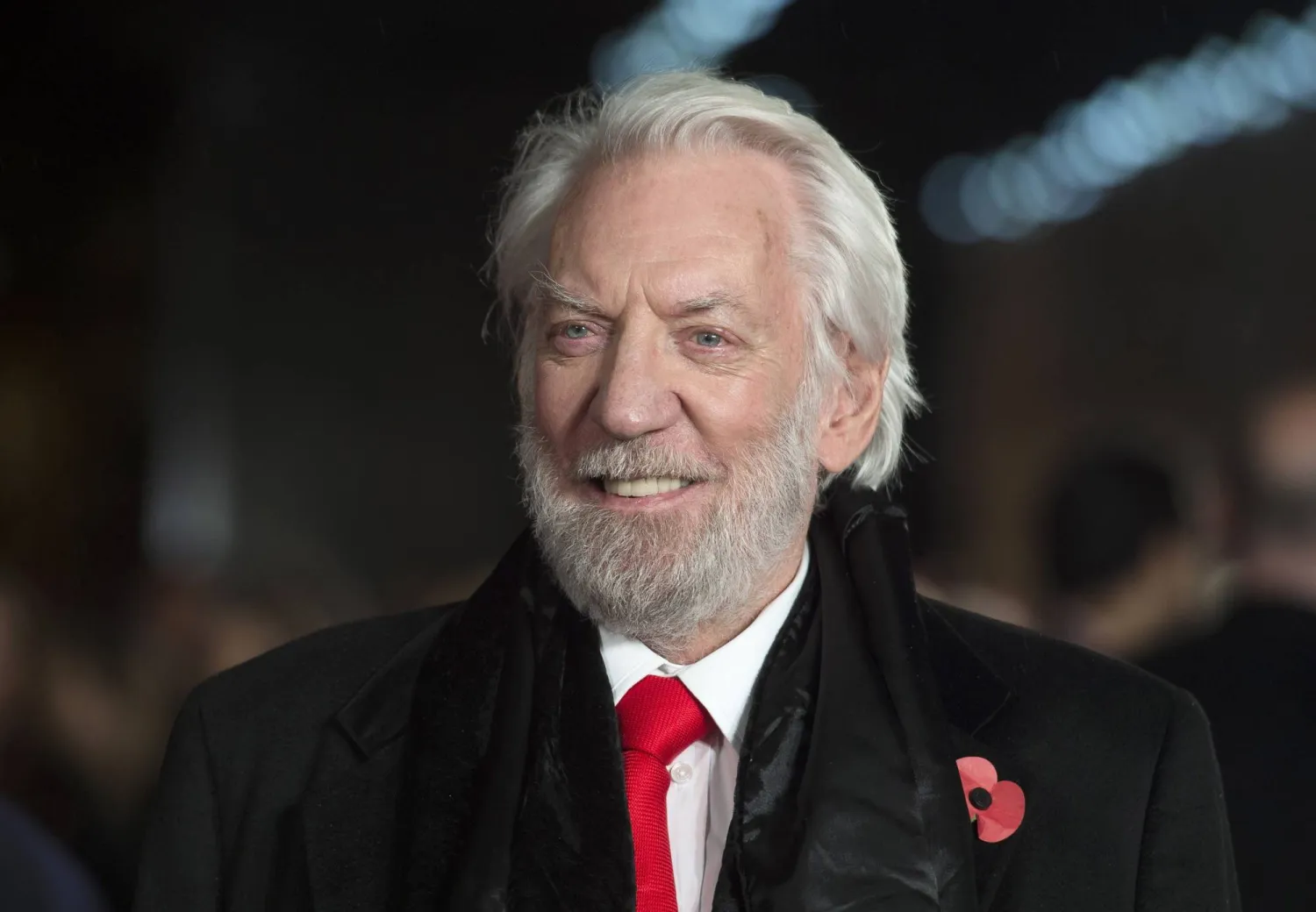Donald Sutherland, the prolific film and television actor whose long career stretched from "M.A.S.H." to “The Hunger Games,” has died. He was 88.
Kiefer Sutherland, the actor's son, confirmed his father's death Thursday, The Associated Press reported.
“I personally think one of the most important actors in the history of film,” Kiefer Sutherland said on X. “Never daunted by a role, good, bad or ugly. He loved what he did and did what he loved, and one can never ask for more than that.”
The tall and gaunt Canadian actor with a grin that could be sweet or diabolical was known for offbeat characters like Hawkeye Pierce in Robert Altman's "M.A.S.H.," the hippie tank commander in "Kelly's Heroes" and the stoned professor in "Animal House."
Before transitioning into a long career as a respected character actor, Sutherland epitomized the unpredictable, antiestablishment cinema of the 1970s .
Over the decades, Sutherland showed his range in more buttoned-down — but still eccentric — parts in Robert Redford's "Ordinary People" and Oliver Stone's "JFK." More, recently, he starred in the “Hunger Games” films. He never retired, working regularly up until his death. A memoir, “Made Up, But Still True,” was due out in November.
"I love to work. I passionately love to work," Sutherland told Charlie Rose in 1998. "I love to feel my hand fit into the glove of some other character. I feel a huge freedom — time stops for me. I'm not as crazy as I used to be, but I'm still a little crazy."
Sutherland career as a leading man peaked in the 1970s, when he starred in films by the era's top directors — even if they didn't always do their best work with him. Sutherland, who frequently said he considered himself at the service of a director's vision, worked with Federico Fellini (1976's "Fellini's Casanova"), Bernardo Bertolucci (1976's "1900"), Claude Chabrol (1978's "Blood Relatives") and John Schlesinger (1975's "The Day of the Locust").
One of his finest performances came as a detective in Alan Pakula's "Klute" (1971). It was during filming on "Klute" that he met Fonda, with whom he had a three-year-long relationship that began at the end of his second marriage to actor Shirley Douglas. Having been married in 1966, he and Douglas divorced in 1971.
Sutherland had twins with Douglas in 1966: Rachel and Kiefer, who was named after Warren Kiefer, the writer of Sutherland's first film, "Castle of the Living Dead."
In 1974, the actor began living with actress Francine Racette, with whom he remained ever after. They had three children: Roeg, born in 1974 and named after the director Nicolas Roeg ("Don't Look Now"); Rossif, born in 1978 and named after the director Frederick Rossif; and Angus Redford, born in 1979 and named after Robert Redford.
It was Redford who, to the surprise of some, cast Sutherland as the father in his directorial debut, 1980's "Ordinary People." Redford's drama about a handsome suburban family destroyed by tragedy won four Oscars, including best picture.
Sutherland was overlooked by the academy throughout most of his career. He was never nominated but was presented with an honorary Oscar in 2017. He did, though, win an Emmy in 1995 for the TV film "Citizen X" and was nominated for seven Golden Globes (including for his performances in "M.A.S.H." and "Ordinary People"), winning two — again for "Citizen X" and for the 2003 TV film "Path to War."
"Ordinary People" also presaged a shift in Sutherland's career toward more mature and sometimes less offbeat characters.
His New York stage debut in 1981, though, went terribly. He played Humbert Humbert in Edward Albee's adaptation of Vladimir Nabokov's "Lolita," and the reviews were merciless; it closed after a dozen performances.
A down period in the '80s followed, thanks to failures like the 1981 satire "Gas" and the 1984 comedy "Crackers."
But Sutherland continued to work steadily. He had a brief but memorable role in Oliver Stone's "JFK" (1991). He again played a patriarch for Redford in his 1993 movie "Six Degrees of Separation." He played track coach Bill Bowerman in 1998's "Without Limits."
In the last decade, Sutherland increasingly worked in television, most memorably in HBO's "Path to War," in which he played President Lyndon Johnson's Secretary of Defense Clark Clifford.
Actor Donald Sutherland Dies at 88

Canadian actor Donald Sutherland arrives for the UK premiere of The Hunger Games: Mockingjay - Part 2 in Leicester Square, Central London, Britain, 05 November 2015 (reissued 20 June 2024). EPA/WILL OLIVER

Actor Donald Sutherland Dies at 88

Canadian actor Donald Sutherland arrives for the UK premiere of The Hunger Games: Mockingjay - Part 2 in Leicester Square, Central London, Britain, 05 November 2015 (reissued 20 June 2024). EPA/WILL OLIVER
لم تشترك بعد
انشئ حساباً خاصاً بك لتحصل على أخبار مخصصة لك ولتتمتع بخاصية حفظ المقالات وتتلقى نشراتنا البريدية المتنوعة







